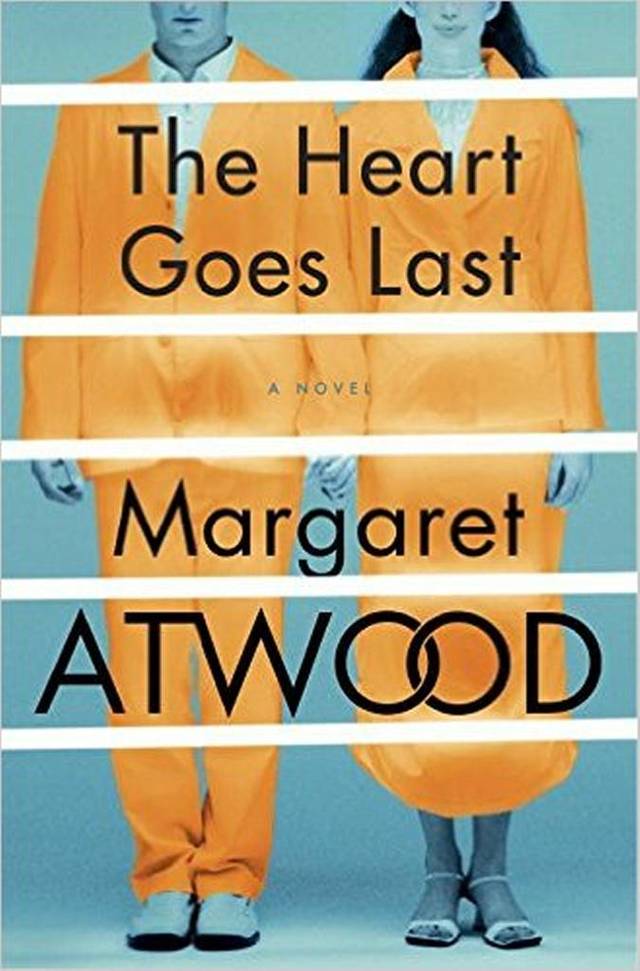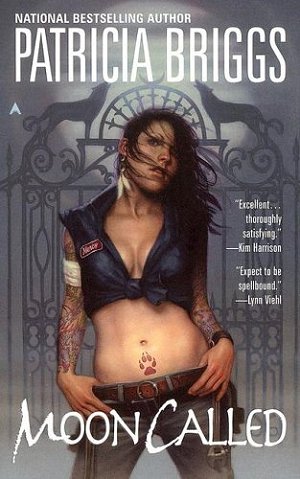

King's newest book is a collections of short stories called the Bazaar of Bad Dreams (November 2015). The cover was not something Rae and I were drawn too. It is very dark and the image is surreal with text writing like a bad horror movie.
First Line: "You can't come," his older brother said.
Me/Rae: Nope. Not in.
Me: I don't like openings that start with dialogue.
Then I saw the new Margaret Atwood novel in the new fiction aisle, The Heart Goes Last (September 2015).
Me/Rae: Ooh, the new Margaret Atwood./The cover's interesting.
First Line: "Sleeping in the car is cramped."
Rae: I'm out and I'm not surprised.
Me: Wow, I'm disappointed. Do you think that once you become a name, a brand, that the authors just don't worry about hooking readers with first lines? Because they expect their name to sell the books?
Little did I know that one innocent question would snowball in the conversation. Rae brought up a discussion from one of her writing class and the professor who said that nobody wants to edit the brand authors anymore. He did not give a reason why but it explains what may be happening. To find out if that was really true, I decided to run a little experiment and collect the first sentence to all King and Atwood's novel in order of publication. My hypothesis is that later publications will have less enticing first sentences than earlier publications because the authors or relying on their names to sell books rather than hooking readers as they did before becoming major author names.
With this in mind, I compiled a list of first sentences from Atwood and King's books (one's published clearly under their names, not pseudonyms). The first sentences were put in alphabetical order without authorship to prevent bias. However, since I compiled the list, I gave the list of first lines in alphabetical order to Rae and a few others with the stipulations that they didn't have to choose any of them in the hopes of more objective results, which were thus:
Stephen King's first lines generally didn't hook anybody and it didn't seem to matter when he wrote them. The early works and the later ones have about the same lack of appeal. Although, pretty much everyone did pick the first line from his very first book Carrie (1974): "Nobody was really surprised when it happened, not really, not at the subconscious level where savage things grow." But the rest were passed over equally.
More people chose the first lines from Margaret Atwood. Interestingly it's not her earlier works that were chosen but some of her later ones.
So what are the results? Inconclusive. There isn't any evidence either way. I still think though that there are plenty of people in the world who read books because of who wrote it rather than what the book is about. I think about my own Amazon pre-order list filled with books by my favorite authors. I don't know what the books are going to be about but just the fact that so-and-so author wrote them is enough justification for me to order them. I'm sure the same holds true for the likes of Stephen King, Nora Roberts, etc... These are authors who have become a brand. And once they've become that brand, why waste time trying to craft opening sentences to hook readers? Maybe they just decided it was time to shelve it.
Word Count: 607
Edits: 2









